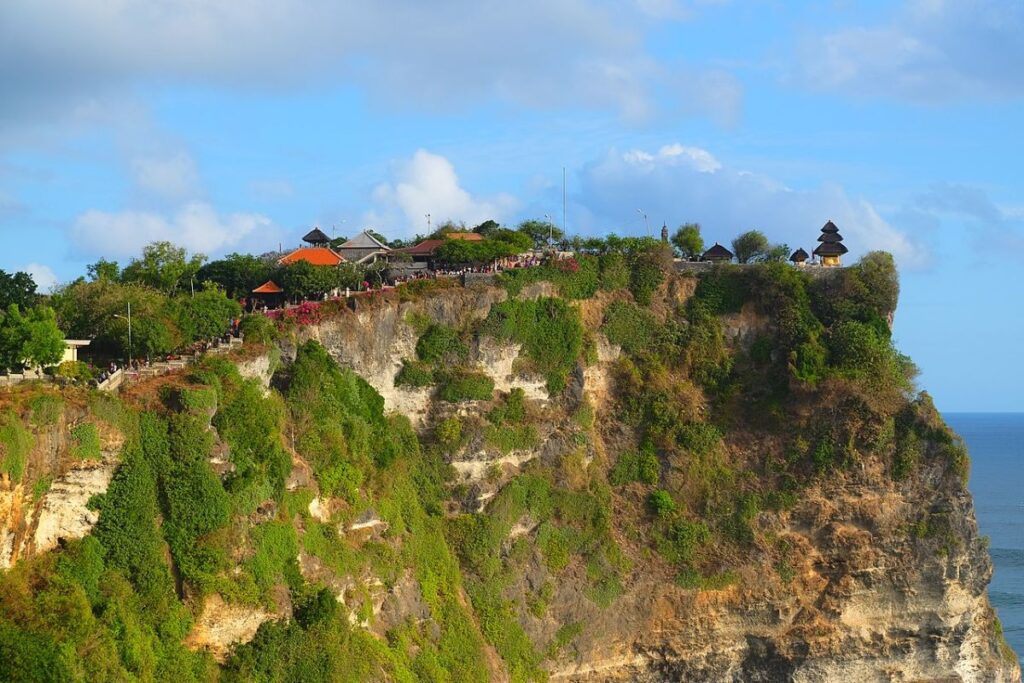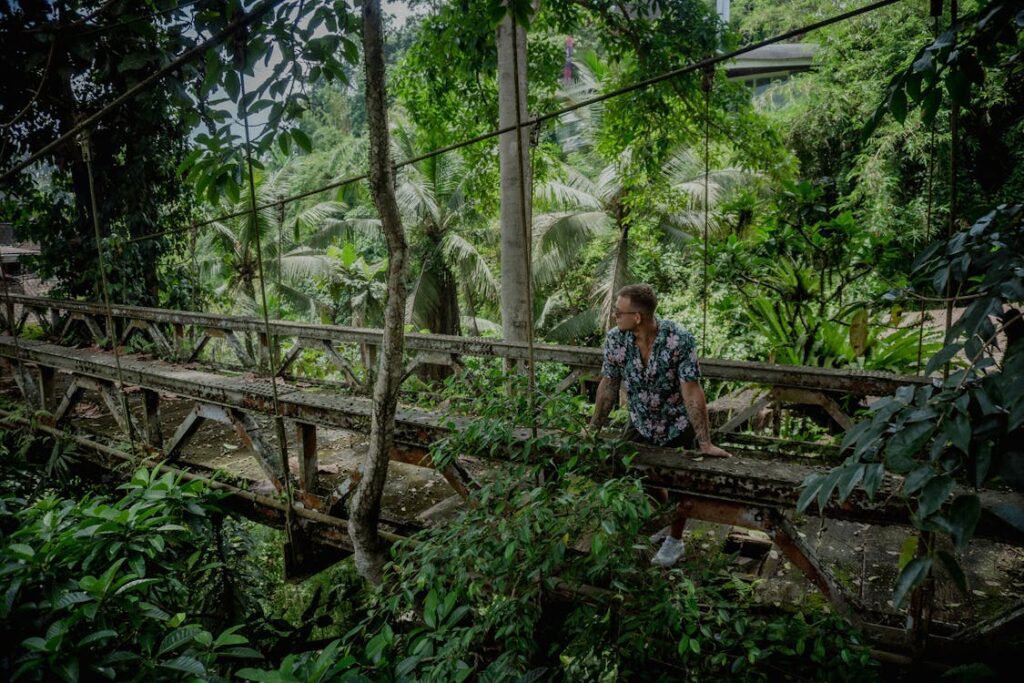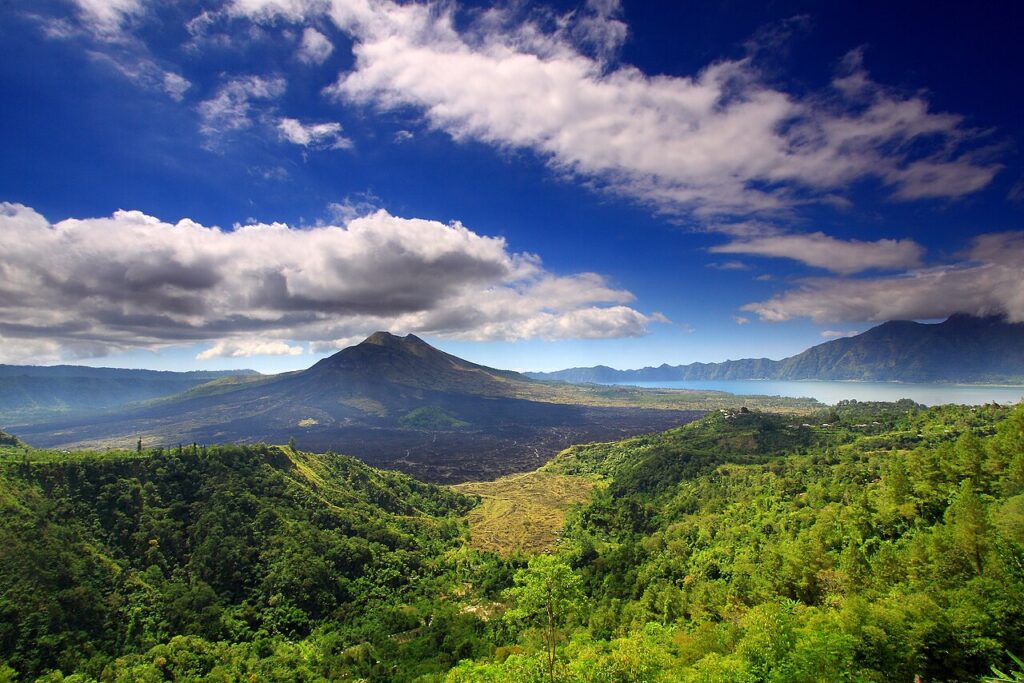Bali, Indonesia, is a tropical paradise known for its stunning landscapes, vibrant culture, and diverse activities. Whether you’re a nature lover, an adventure seeker, or someone looking to relax, Bali offers a plethora of options to suit every traveler’s needs. Here are eight must-do activities to make your Bali trip unforgettable.
1. Visit the Uluwatu Temple

Uluwatu Temple, perched on a steep cliff overlooking the Indian Ocean, is one of Bali’s most iconic landmarks. This sea temple offers breathtaking views, especially during sunset. It’s not just the scenic beauty that draws visitors; the temple is also an important cultural and religious site. Don’t miss the Kecak dance performance held every evening. The traditional dance, set against the backdrop of the setting sun, is a mesmerizing experience.
2. Explore Ubud’s Cultural Heart

Ubud is the cultural heart of Bali, renowned for its art, dance, and music. The Ubud Palace is a great starting point, offering a glimpse into Bali’s royal heritage. Nearby, the Ubud Art Market is perfect for picking up traditional crafts and souvenirs. Ubud is also home to numerous art galleries and museums, such as the Neka Art Museum and the Agung Rai Museum of Art, showcasing Bali’s rich artistic traditions.
3. Relax on Bali’s Beaches

Bali boasts some of the most beautiful beaches in the world. Kuta Beach is famous for its vibrant nightlife and surfing opportunities. Seminyak Beach offers a more upscale experience with luxury resorts and chic beach clubs. For a quieter retreat, head to Nusa Dua Beach, where you can enjoy white sands and clear blue waters. Each beach in Bali has its unique charm, catering to different preferences.
You May Also Like These
4. Discover the Tegalalang Rice Terraces

The Tegalalang Rice Terraces in Ubud are a UNESCO World Heritage site and a testament to Bali’s agricultural ingenuity. The terraced landscape is a spectacular sight, with lush green paddies stretching as far as the eye can see. Take a leisurely walk through the terraces, interact with local farmers, and learn about traditional rice cultivation methods. There are also several cafes around where you can enjoy the view while sipping on a refreshing drink.
5. Dive into Bali’s Underwater World

Bali is a haven for divers and snorkelers. The waters around the island are teeming with marine life, coral reefs, and shipwrecks. Tulamben is famous for the USAT Liberty shipwreck, a popular diving spot. For colorful coral gardens and abundant marine life, head to Menjangan Island in West Bali National Park. Nusa Penida offers a chance to see the majestic Manta Rays. Whether you’re a seasoned diver or a beginner, Bali’s underwater world promises an unforgettable experience.
6. Visit the Sacred Monkey Forest Sanctuary

Located in Ubud, the Sacred Monkey Forest Sanctuary is home to hundreds of long-tailed macaques. This lush forest sanctuary is not just about the monkeys; it’s also a place of spiritual significance, with three ancient temples located within the grounds. Walking through the forest, you’ll feel a sense of peace and wonder. The playful monkeys add a fun element to the visit, but remember to follow the guidelines to ensure a safe and enjoyable experience.
7. Experience Traditional Balinese Dance

Traditional Balinese dance is an integral part of the island’s culture. The dances are a form of storytelling, often depicting tales from Hindu epics like the Ramayana. Ubud is the best place to witness these captivating performances. The Pura Dalem Ubud and the Ubud Palace are popular venues for nightly dance shows. The Barong and Kris dance in Batubulan village is another must-see, known for its vibrant costumes and dramatic choreography.
8. Trek to Mount Batur

For the adventurous, a trek to Mount Batur offers a thrilling experience. Mount Batur is an active volcano located in the Kintamani district. The trek typically starts in the early hours of the morning to reach the summit by sunrise. The hike, although moderately challenging, is doable for most fitness levels. Watching the sunrise from the top, with panoramic views of the surrounding caldera and Lake Batur, is a breathtaking reward for your efforts.
You May Also Like These
Practical Tips for Traveling in Bali
1. Respect Local Customs
Bali is predominantly Hindu, and its culture and traditions are deeply respected by the locals. To ensure a respectful and enriching experience:
- Dress Modestly: When visiting temples or participating in religious ceremonies, wear modest clothing. Men and women should cover their shoulders and knees. A sarong and sash are often required and can be rented or bought at temple entrances.
- Respect Offerings: Balinese people frequently place small offerings (canang sari) on the ground, at temples, and on altars. Be mindful not to step on or disturb these offerings, as they hold significant spiritual value.
- Temple Etiquette: Always ask for permission before entering a temple, and avoid entering if you are menstruating, as this is considered impure. Remove your shoes before entering temple grounds.
2. Transportation
Getting around Bali requires some planning. Here are the main options:
- Scooter Rental: Renting a scooter is a popular and cost-effective way to explore Bali. Ensure you have an international driving permit and wear a helmet at all times. Traffic can be chaotic, so only rent a scooter if you’re confident in your driving skills.
- Private Drivers: Hiring a private driver is a convenient and comfortable option, especially for longer distances or day trips. Many drivers also act as guides, offering insights into local attractions and culture.
- Taxis and Ride-Sharing: Taxis are readily available, but it’s best to use reputable companies like Blue Bird. Ride-sharing apps like Grab and Gojek are also popular and reliable.
3. Health Precautions
Staying healthy while traveling in Bali is crucial for a pleasant trip:
- Hydration and Sun Protection: Bali’s tropical climate means staying hydrated is essential. Drink plenty of bottled or filtered water. Apply sunscreen regularly to protect against the strong tropical sun.
- Food Safety: Be cautious with street food. While delicious, some street vendors may not adhere to strict hygiene standards. Choose food stalls with high turnover, indicating freshness, and avoid raw or undercooked foods.
- Travel Insurance: Ensure you have comprehensive travel insurance that covers health emergencies, including medical evacuation if necessary.
4. Currency
The local currency is the Indonesian Rupiah (IDR). Here’s how to manage your finances effectively:
- Cash is King: While credit and debit cards are widely accepted in tourist areas, having cash is essential, especially in rural areas or smaller establishments. ATMs are plentiful, but be cautious of fees and withdrawal limits.
- Money Exchange: Exchange your currency at reputable money changers or banks. Avoid street money changers, who may offer attractive rates but might engage in scams.
5. Best Time to Visit
Choosing the right time to visit Bali can enhance your experience:
- Dry Season (April to October): This is the best time to visit, with sunny days and pleasant weather, perfect for outdoor activities and exploring the island.
- Wet Season (November to March): The rainy season sees frequent downpours, but Bali remains lush and vibrant. This period can be less crowded and offers lower prices on accommodation and activities.
6. Accommodation
Bali offers a wide range of accommodation options to suit all budgets:
- Book in Advance: Especially during peak seasons (July, August, and December), book your accommodation in advance to secure the best deals and avoid disappointment.
- Types of Accommodation: From budget hostels and guesthouses to luxury resorts and private villas, Bali has something for every traveler. Research and choose based on your preferences and budget.
7. Connectivity
Staying connected in Bali is straightforward:
- SIM Cards: Purchase a local SIM card with a data plan upon arrival. Providers like Telkomsel, XL, and Indosat offer affordable and reliable options. These can be bought at the airport or local shops.
- Wi-Fi: Most hotels, cafes, and restaurants offer free Wi-Fi, but having a local SIM card ensures you stay connected and can easily navigate using GPS.
Conclusion
Bali, Indonesia, is a destination that promises a rich and diverse experience. From its spiritual temples and vibrant culture to its stunning natural landscapes and adventure opportunities, Bali has something for everyone. Whether you’re relaxing on its pristine beaches, exploring its underwater world, or immersing yourself in its artistic heritage, each moment in Bali is bound to be memorable. Plan your trip, respect the local customs, and enjoy everything this beautiful island has to offer.





























Leave a Reply
View Comments